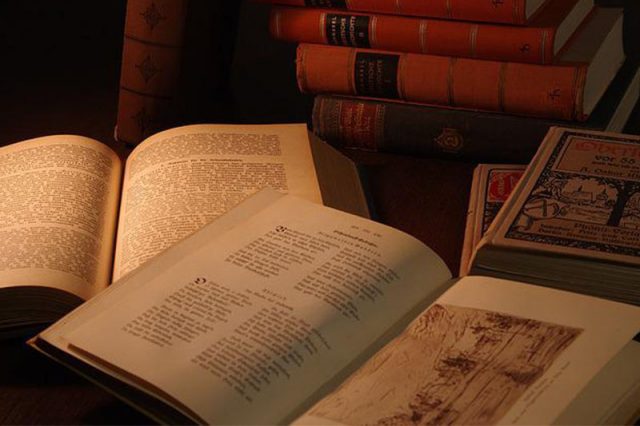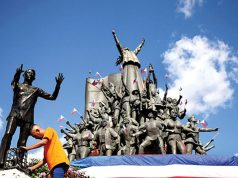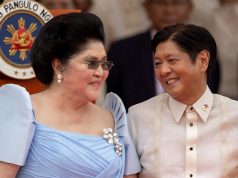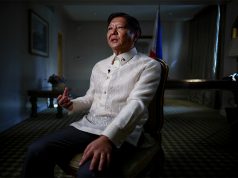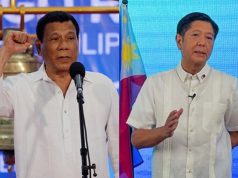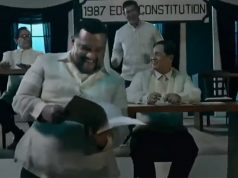The Komisyon sa Wikang Filipino ordered to ban “subversive” books in libraries and schools for being “anti-government.”
The KWF memorandum was issued on the same day National Task Force to End Local Communist Armed Conflict spokesperson Lorraine Badoy showed portions of these books during a show at Sonshine Media Network.
Badoy, along with some government officials, questioned the 17 books published by KWF for being “subversive,” “anti-Marcos,” and “anti-Duterte.”
The KWF cited the provision of the Anti-Terrorism Act on inciting to commit terrorism as a basis to ban “subversive books” so that they will not be held liable under the law.
“Pinapayuhan din ang lahat ng SWK Direkto sa pamamagitan ng tagapag-ugnay nito na huwag ipamigay ang mga tukoy na aklat sa ibaba upang hindi tayo managot sa RA 11479 particular sa seksiyon 9, inciting to commit terrorism,” the memorandum dated August 9 reads.
Among the works banned is the published research of Dexter Cayanes titled “Tawid diwa sa pananagisag ni Bienvenido Lumbera: Ang bayan, ang manunulat at ang magasing sagisag sa imahinatibong yugto ng batas militar 1975-1979.”
Cayane’s research is about the literary works of the late National Artist Bienvenido Lumbera during Martial Law. Lumbera was imprisoned during the leadership of Ferdinand Marcos Sr.
Other books included in the list are the “Teatro Political Dos” by Malou Jacob, “Kalatas: mga kuwentong bayan at kuwentong buhay” by Rommel Rodriguez, “May Hadlang ang Umaga” by Don Pagusara, “Labas: Mga Palabas ng Sentro” by Reuel Aguilla.
The works of Jacob, Rodriguez, and Pagusara were all published by the KWF.
The former KWF Leyte-Samar commissioner Jerry Gracio expressed his alarm about the memo.
“Ang nakakaloka, they red-tagged the authors for referencing Lumbera and A. Guillermo. Pati footnotes, binabasa na nila?! We allow this & we signal the death of scholarship,” Gracio said in a tweet.
The award-winning writer also expressed his frustration about red-tagging.
“Nakakapika na itong red-tagging. Pinapakialaman na nila pati ang mga librong isinusulat natin, ang references, ang mga sina-cite nating aklat at scholarly works. Damay na ang lahat ng artists, manunulat, iskolar,” Gracio said urging artists. scholars, and cultural workers to unite against red-tagging.
“If they are red-tagging our authors and scholars, and their books, hindi malayo na i-red tag din nila pati ang ating writers at directors, ang mga pelikula at teleserye, ang mga palabas sa TV, ang content creators, ang laman ng social media. Di natin dapat palagpasin ito,” he added.
Filipinos expressed their frustration over KWF’s memo.
“The chilling effect of the Anti-Terrorism Law. Instead of focusing on strengthening the nation’s collective memory through the promotion of our local books and intellectualizing the Filipino language, this is what they do: banning books that tell conditions, stories of society,” an online user said.
He also questioned how books that expose the realities of society could incite terrorism.
Another online user compared the KWF memo with the Nazi burning books contradictory to Nazism.
https://t.co/9wlTWQffyk pic.twitter.com/SKG68vy3Ef
— 🐸 (@pastab0y) August 11, 2022
A Twitter user said the memo was a form of censorship, saying that the government is breaking its mandate to promote free speech and thought.
“First, there was the NTF-ELCAC red-tagging publishing houses and bookstores. Now there’s an order from the KWF to pull out books that tackle experiences from the Marcos dictatorship,” a Twitter user said.
“What we’re seeing is the academic manifestation of fascism,” he added.
Last March 2022, the independent bookshop Popular Bookstore was vandalized with graffiti that reads: “NPA Terorista.”
Following the incident, another local bookstore, La Solidaridad, was also vandalized with red paint.
READ: Vandalism, red-tagging of bookstores’ attack on right to free speech,’ group, patrons say

